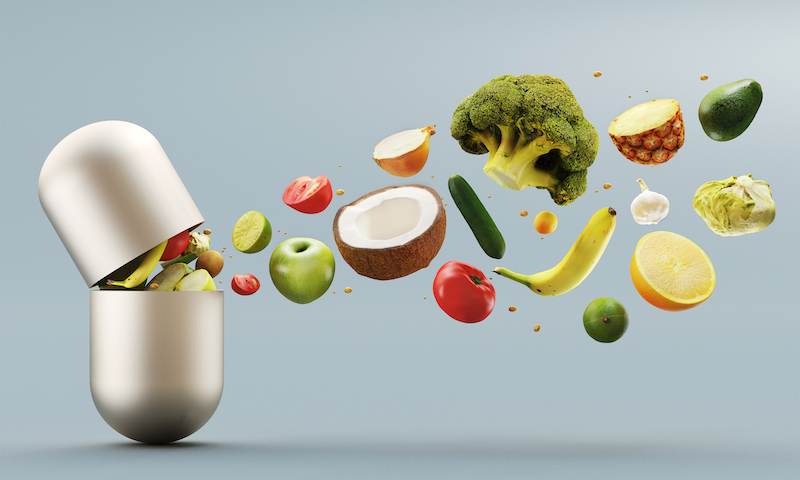Increase of awareness towards taking care of health through food and supplements has made many health companies create products to cater the different needs of people with different health concerns. Power of knowledge and accessibility towards health information has made people become aware of their health level and what to do to improve their health status. However, so many terms being used to describe health products or healthy foods can be rather confusing and it can be difficult to distinguish one from another. Medical supplements such as medical food and dietary supplements may seem similar at a glance but truthfully are two different substances serving different purposes.
Medical food
Medical food as defined by the United States Food & Drug Administration (FDA) is “a food which is formulated to be consumed or administered enterally under the supervision of a physician and which is intended for the specific dietary management of a disease or condition for which distinctive nutritional requirements, based on recognized scientific principles, are established by medical evaluation”. The definition can be quite mouthful or complicated but in short, medical food is food designed to be properly administered via oral or using a specific tube to pass the food through the entire digestive system.
Medical food is meant to be easily absorbed and digested for those with difficulty eating or digesting typical normal food we eat. It is specially formulated and intended to support dietary needs of those with diseases or conditions that need specific nutritional needs that cannot be gained solely by normal diet.
Medical food is usually given with ongoing supervision from a healthcare practitioner. This is in conjunction with the health conditions of patients requiring the medical food to be taken in the right amount or adjusted in accordance to their body needs. Ingredients used to produce medical food must be made within the GRAS (Generally Recognized as Safe) grade or approved food additives. Although this product is intended to be taken under medical supervision, medical food typically requires no prescriptions.
Medical food may come in various forms such as powders, liquid, tablets and even gum. Generally, medical food is divided into three categories:
1- Products with a full complements of nutrients
2- Molecular products such as ready-to-drink beverage, tablets and amino acid mixtures
3- Low-protein food
Dietary supplements
Dietary supplements as defined by the FDA is “products taken by mouth that contain a dietary ingredient”. Dietary ingredients can be made up from many ingredients. Most common are vitamins, minerals, amino acids, traditional herbs or botanical plants and many other ingredients to cover a person’s diet. It is often designed for healthy individuals to boost their health by providing nutritional boost.
Dietary supplements are available in many forms such as tablets, pills, liquids and powders. Newer forms of supplements like chewable gummy have made dietary supplements much more fun and easier for people across all generations to take it. This kind of product is not strictly regulated such as medical food.
Consumption of dietary supplements usually do not need medical supervision although it is advisable for those planning to take supplements to get medical advice or advice from their healthcare providers especially if they have other underlying chronic illness or taking other medication. Dietary supplement is in no means to be used as food replacement as it can never replicate all nutrients and benefits of what a whole food could provide. Dietary supplements’ main function is to support a person’s wellbeing.
If you are having a health condition that is bothering you and still unsure if taking medical food or dietary supplement may benefit you, talk to your healthcare provider to see which can suit you better.




